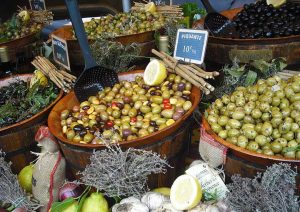News
President Macron Makes Changes To French Food Chain To Help Farmers
According to reports by Reuters, President of France Emmanuel Macron has made changes to France’s food chain on Wednesday so that farmers receive a fair price for their produce. He said at the address at Rungis international food market that he has brought to force a new contract that will cater to farmers’ production costs and make stronger producer organisations along with a change in the legislation.
Keeping The Farm To Fork Promise
The changes that the President has made are a part of the major field-to-fork review promise made by him in his presidential campaign. He had sought to pacify the farmers who according to him are an important part of the constituency and have been complaining about the excessive red tape.
The statistical data by the Agricultural Mutual Assistance Association (MSA) brought forth in the Reuters report says that the farmers had earned less than 350 euros in a month which is a third of the net minimum wage. “We should allow farmers not to rely on subsidies anymore and therefore ensure than they be paid a fair amount for their work,” Macron said.
Currently, the produce prices in France are being set by buyers who are tempted to pressure the prices. The farmers are hence unable to cover the costs. President has now endorsed a proposal from the workshops that reverses the contract and now it starts from farmers, to food processors and then the retailers. He believes that this would be ensure the spread of value added to the food chain.
Contemplating The Decision
French retailers had raised a proposal to the President that asked to raise the minimum prices that can be levied on products as it could benefit the lower food chain. To this he answered that it would only be limited to food products and will only favour if all the sectors propose the organisation plans by the end of this year.
His office even said on Tuesday that the decision on this proposal was delayed till the end of the year so that fulfils his promise to boost the farmers’ income as well as food quality and at the same time keep retail inflation to a minimum. “Raising the threshold of resale at a loss without asking for any effort, no accompaniment, no transformation, is a form of blank cheque,” he added.





















